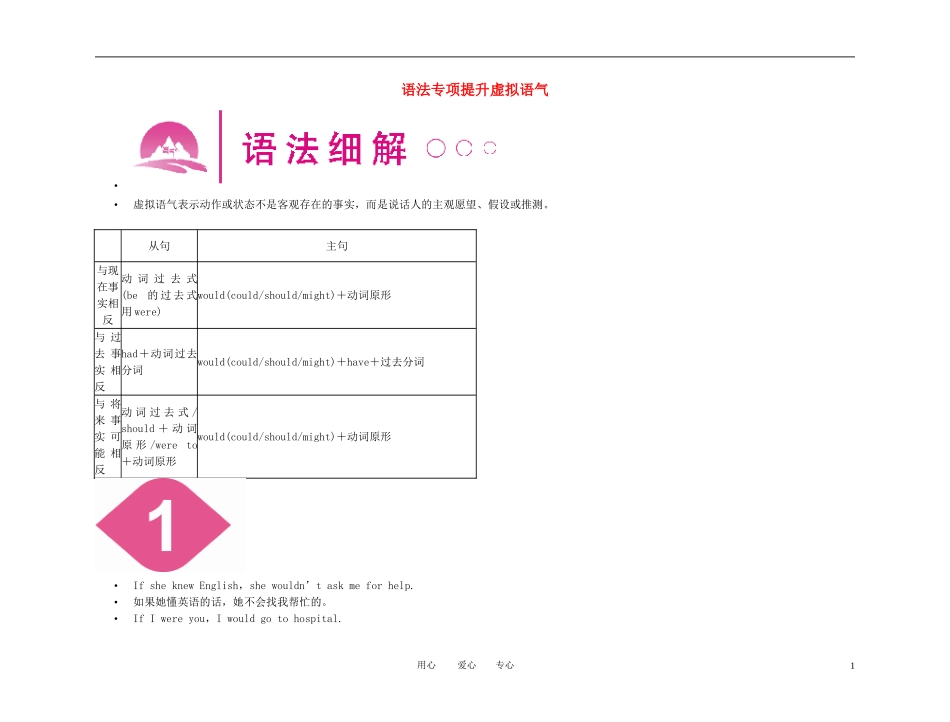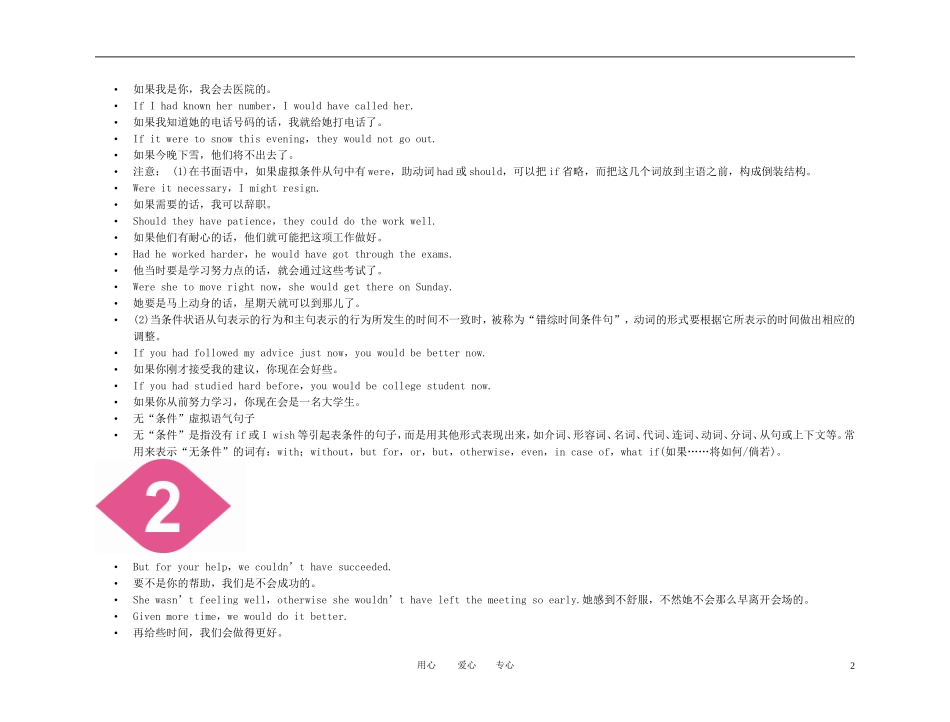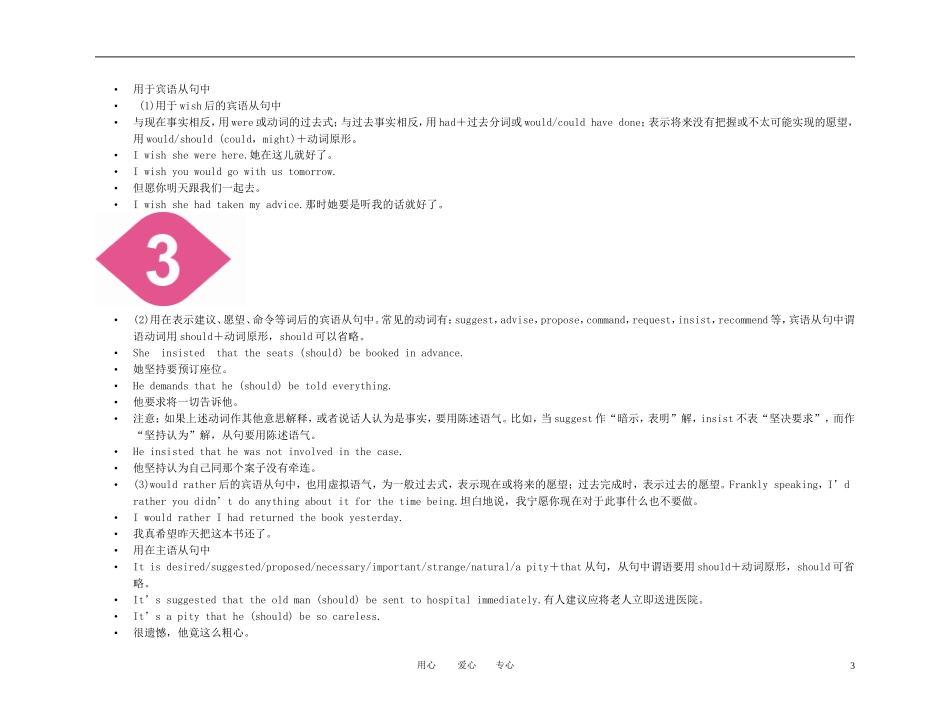语法专项提升虚拟语气••虚拟语气表示动作或状态不是客观存在的事实,而是说话人的主观愿望、假设或推测。 从句主句与现在事实相反动 词 过 去 式 (be 的 过 去 式用 were)would(could/should/might)+动词原形与 过去 事实 相反had+动词过去分词would(could/should/might)+have+过去分词与 将来 事实 可能 相反动 词 过 去 式 /should + 动 词原 形 /were to+动词原形would(could/should/might)+动词原形•If she knew English,she wouldn’t ask me for help.•如果她懂英语的话,她不会找我帮忙的。•If I were you,I would go to hospital.用心 爱心 专心1•如果我是你,我会去医院的。•If I had known her number,I would have called her.•如果我知道她的电话号码的话,我就给她打电话了。•If it were to snow this evening,they would not go out.•如果今晚下雪,他们将不出去了。•注意: (1)在书面语中,如果虚拟条件从句中有 were,助动词 had 或 should,可以把 if 省略,而把这几个词放到主语之前,构成倒装结构。•Were it necessary,I might resign.•如果需要的话,我可以辞职。•Should they have patience,they could do the work well.•如果他们有耐心的话,他们就可能把这项工作做好。•Had he worked harder,he would have got through the exams.•他当时要是学习努力点的话,就会通过这些考试了。•Were she to move right now,she would get there on Sunday.•她要是马上动身的话,星期天就可以到那儿了。•(2)当条件状语从句表示的行为和主句表示的行为所发生的时间不一致时,被称为“错综时间条件句”,动词的形式要根据它所表示的时间做出相应的调整。•If you had followed my advice just now,you would be better now.•如果你刚才接受我的建议,你现在会好些。•If you had studied hard before,you would be college student now.•如果你从前努力学习,你现在会是一名大学生。•无“条件”虚拟语气句子•无“条件”是指没有 if 或 I wish 等引起表条件的句子,而是用其他形式表现出来,如介词、形容词、名词、代词、连词、动词、分词、从句或上下文等。常用来表示“无条件”的词有:with;without,but for,or,but,otherwise,even,in case of...


